Waukesha Celebrates Completing Milwaukee Water Pipeline
$286 million project will provide safe water for suburban community, revenue for Milwaukee.

Milwaukee Mayor Cavalier Johnson and Waukesha Mayor Shawn Reilly with a celebratory toast to the Great Water Alliance. Photo by Jeramey Jannene.
A largely hidden 13-mile pipeline now joins the communities of Waukesha and Milwaukee, ending a two-decade quest by the City of Waukesha and its 71,158 residents to find a radium-free source of drinking water and creating a new revenue source for the City of Milwaukee.
“Milwaukee water was the right choice because of its closer connection, low rates and capacity. Just as important, Milwaukee is a national leader in ensuring safe drinking water. There is no better water,” said Waukasha Mayor Shawn Reilly during a ceremony Thursday afternoon inside the new Waukesha Booster Pumping Station, 2010 E. Broadway.
The water will start flowing between Sept. 14 and 18 said Waukesha Water Utility general manager Daniel Duchniak, who served as emcee of the event. Duchniak has spent the last 21 years of his career attempting to find a replacement for Waukesha’s depleted aquifer that has elevated levels of naturally-occurring radium. A court order mandates the city find a new water source or spend even more treating the water.
“It’s safe to say I didn’t know what I was getting into 20 years ago,” said Duchniak.
The deal required the ratification of the Great Lakes Compact, then the unanimous approval of the eight governors who lead states that border the Great Lakes, Wisconsin Department of Natural Resources approval and the largest intergovernmental construction project in Wisconsin history.
At one point before the pivotal 2016 vote, Reilly and Duchniak went on a road trip to each of the states to make their case. “We convinced every state that Waukesha had no reasonable alternative to a Great Lakes water supply,” said Reilly.
Their request was the first of its kind approved under the 2008 compact and was ultimately narrowed not to allow any expansion of the Waukesha service area, a key concern of environmental groups and Milwaukee officials.
Waukesha will pull approximately six million gallons of Milwaukee water per day, via a pipeline that starts near S. 76th St. and W. Oklahoma Ave. and travels through six other communities before arriving at the booster station. It will return treated water via the Root River, after it travels through a 23-mile pipeline to an outlet point in Franklin.
“It’s a partnership that has led us to today’s celebration and I look forward to more partnerships, more working together and more celebrations,” said Milwaukee Mayor Cavalier Johnson of Reilly and his Waukesha colleagues. Reilly also endorsed more future collaboration between the cities.
Johnson was also quick to seize upon Reilly’s praise for the quality of Milwaukee’s water, but it was a deal that almost didn’t happen for the city.
“We are here because Jennifer Abele delivered results,” said Johnson, praising the former city lobbyist and Milwaukee Water Works superintendent, who is widely credited with negotiating the deal from the Milwaukee side.
Reilly and Duchniak heaped praise on several Waukesha and state officials for making the project happen on their end, including former Waukesha mayors Carol Lombardi (1998-2006) and Larry Nelson (2006-2010), both of whom were in attendance. No one thanked Jeff Scrima (2010-2014), who opposed buying water from Milwaukee and had led the city to buy more expensive water from Oak Creek, only to be defeated by Reilly in his 2014 re-election bid.
In 2017, Milwaukee and Waukesha announced an agreement that is expected to save Waukesha $40 million in upfront capital and will save Waukesha water customers an estimated $200 per year, despite that their water bills will still rise in cost by almost $600 annually. It was a coup for then-mayor Tom Barrett, who had been left out of the estimated $286 million deal when Scrima took over.
Waukesha is to pay Milwaukee at least $3.2 million annually for the water and already made a $2.5 million one-time payment. The annual payments will rise to $4.5 million if Waukesha uses the full 8.2 million gallons the deal allows, with an additional escalator available to reach 8.5 million gallons for an annual payment of $250,000 plus the cost of the water itself.
Milwaukee, which receives a profit from its water utility, will see increased general fund revenue in the amount of $150,000 to $200,000 annually from the deal. That payment is based on the book value of the utility and is limited by state law. The city is expected to use some of the proceeds to expand its lead lateral replacement program, while Duchniak noted during his remarks Thursday that Waukesha just completed removing its much smaller inventory.
Waukesha County Executive Paul Farrow, Waukesha County Business Alliance head Suzanne Kelley and Waukesha Water Commission board chair Joseph Piatt, a Carroll College environmental sciences professor, also spoke.
“When you think about freshwater and what we have, it’s really a key thing to economic development,” said Farrow.
Piatt said switching to lake water would allow the Waukesha aquifer to refill itself, which would benefit neighboring communities as well.
A celebratory toast served as a capstone of the ceremony, with several officials who had played roles in the two-decade project looking on. Those in the audience included Congressman Scott Fitzgerald, Representative Scott Allen, former Milwaukee Water Works superintendents Karen Dettmer and Abele and current head Patrick Pauly.
CD Smith is building the Waukesha’s pumping station, which is nearly finished. It includes two 8.6-million gallon storage tanks and a new water tower to improve water pressure. Minnesota-based S.J. Louis Co. built the return pipe. The indoor pumping station features pipes in two colors: light blue means the treated water is coming from Lake Michigan and dark blue means it is leaving the plant for Waukesha’s distribution system.
Milwaukee Water Works currently sells water to 16 communities plus the city and the Milwaukee County Grounds. It reports pumping approximately 89.1 million gallons per day in 2020 and has the capacity to pump more than double that amount.
Ceremony
Pumping Station
If you think stories like this are important, become a member of Urban Milwaukee and help support real, independent journalism. Plus you get some cool added benefits.
More about the Waukesha Water Deal
- After Waukesha, Will Other Communities Seek Great Lakes Water? - Danielle Kaeding - Sep 14th, 2023
- Waukesha Celebrates Completing Milwaukee Water Pipeline - Jeramey Jannene - Sep 7th, 2023
- City Of Waukesha To Begin Diverting And Returning Lake Michigan Water Under DNR Diversion Approval - Wisconsin Department of Natural Resources - Sep 5th, 2023
- Waukesha Officials Tour Milwaukee Water Plant - Jeramey Jannene - Aug 3rd, 2023
- MKE County: Board Approves Waukesha Water Deal After Revisions - Graham Kilmer - Dec 16th, 2022
- MKE County: Supervisors Stall Waukesha Drinking Water Project - Graham Kilmer - Dec 8th, 2022
- Suit Opposes Waukesha-Milwaukee Water Plan - Danielle Kaeding - Feb 8th, 2021
- Eyes on Milwaukee: Waukesha, Milwaukee Celebrate Huge Water Project - Jeramey Jannene - Nov 30th, 2020
- Metro Groundwater Has Rising Radium Levels - Danielle Kaeding - Mar 3rd, 2020
- DNR Issues Wastewater Discharge Permit for City of Waukesha Water Diversion Project - Wisconsin Department of Natural Resources - Jan 2nd, 2020
Read more about Waukesha Water Deal here
Political Contributions Tracker
Displaying political contributions between people mentioned in this story. Learn more.
- December 30, 2015 - Tom Barrett received $400 from Jennifer Abele


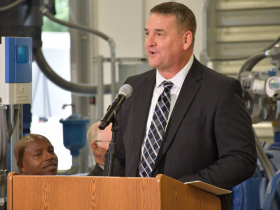
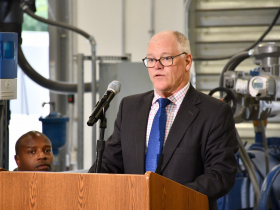
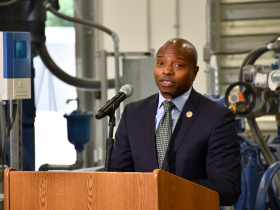
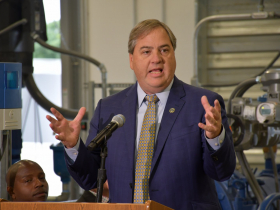
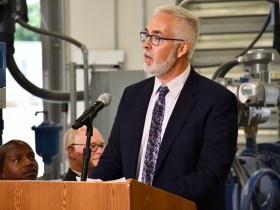
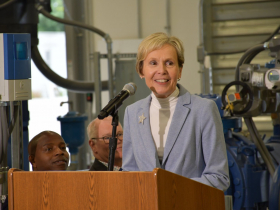
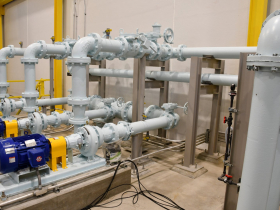
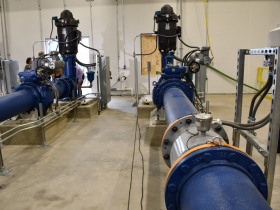
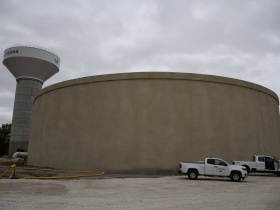
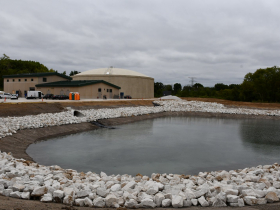
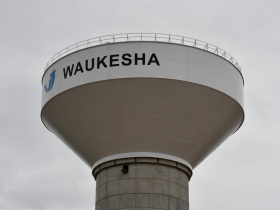
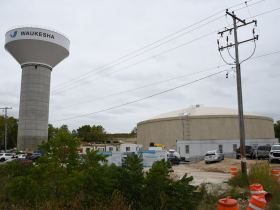




















Both politicians from the City of Waukesha and their elected representatives in Madison have always been critical of Milwaukee, its citizens, its elected representatives, and its governing bodies. They promote public policies which diminish self government and underfund critical services. With this water crisis, the City of Milwaukee stepped up and worked with Waukesha to solve this problem. Now will there be a reciprocity from local and State elected officials in terms of advocating for public policies which help Milwaukee deal with the major issues that it faces? No. These officials will. still work to undermine local control, limit revenues options, and demean its citizens. As the saying goes, “No good deed will go unpunished”.
Maybe if you don’t have enough water you should stop development?
Losers from Waukesha are the most entitled people in this state.
The Mayor always seems happiest when is he with Republicans. Why is that?
This is a the kind of deal that makes you want to throw up.
Please somebody step forward and run for mayor. I don’t think our city can
survive another 4 years with a Republican-lover at the helm.